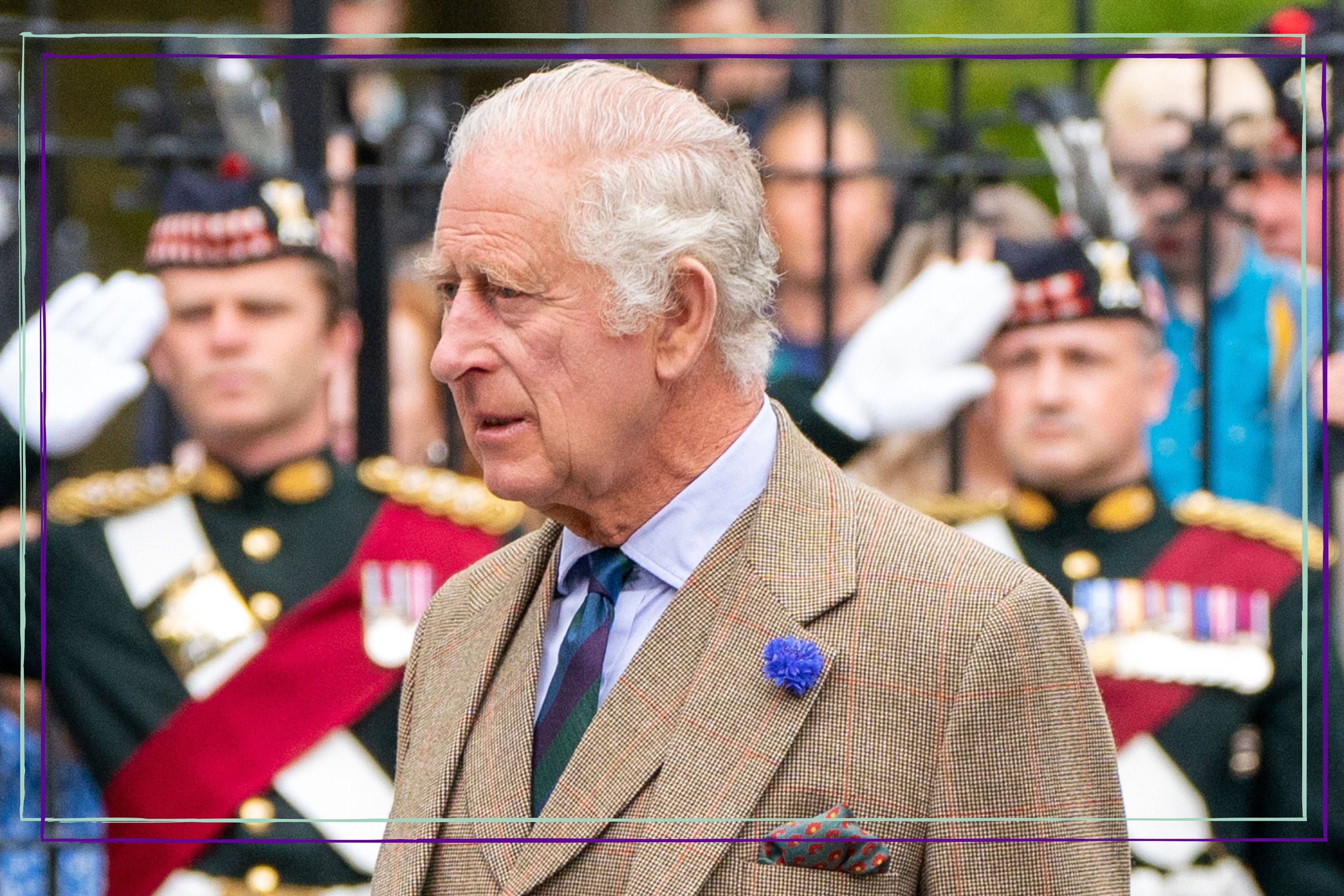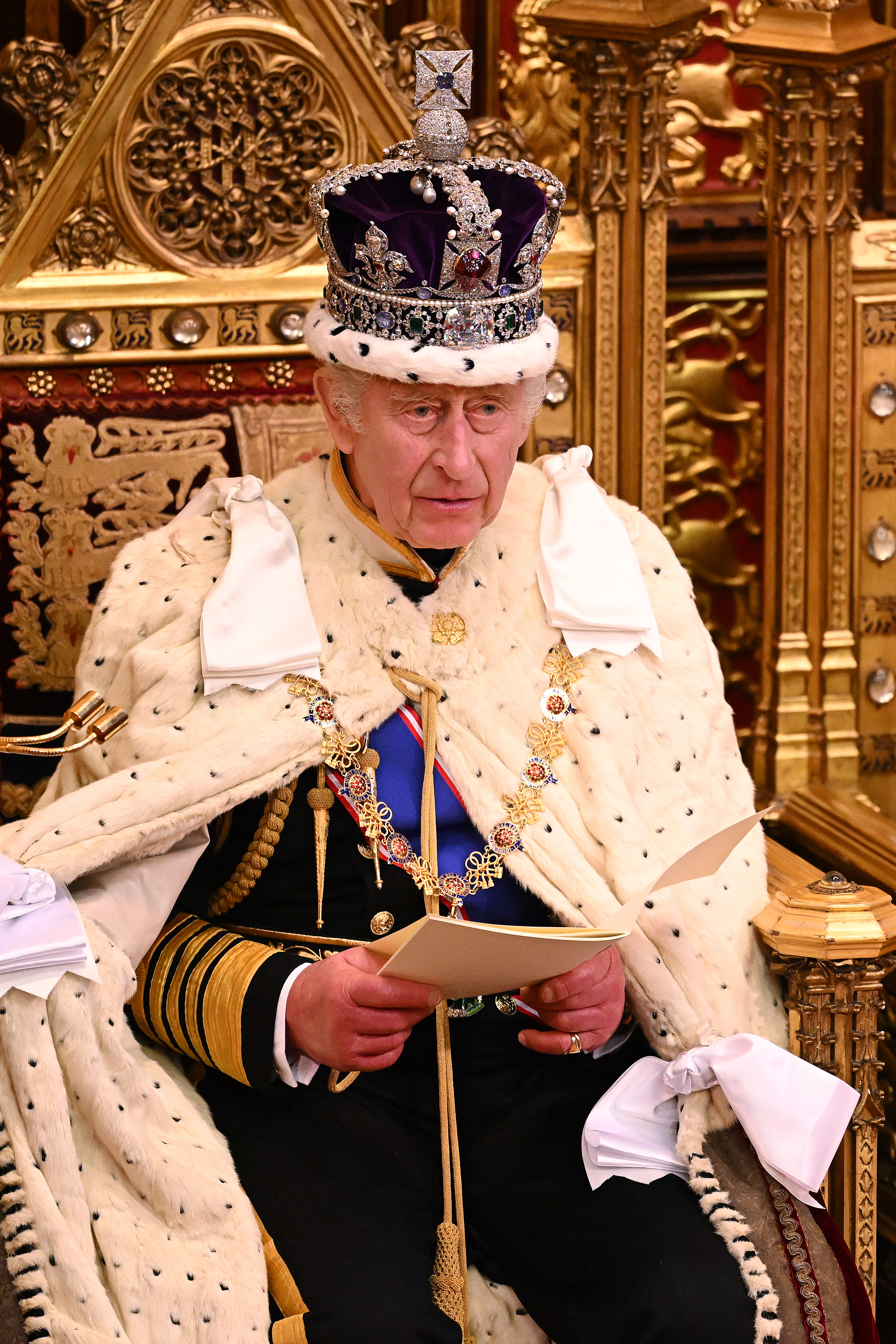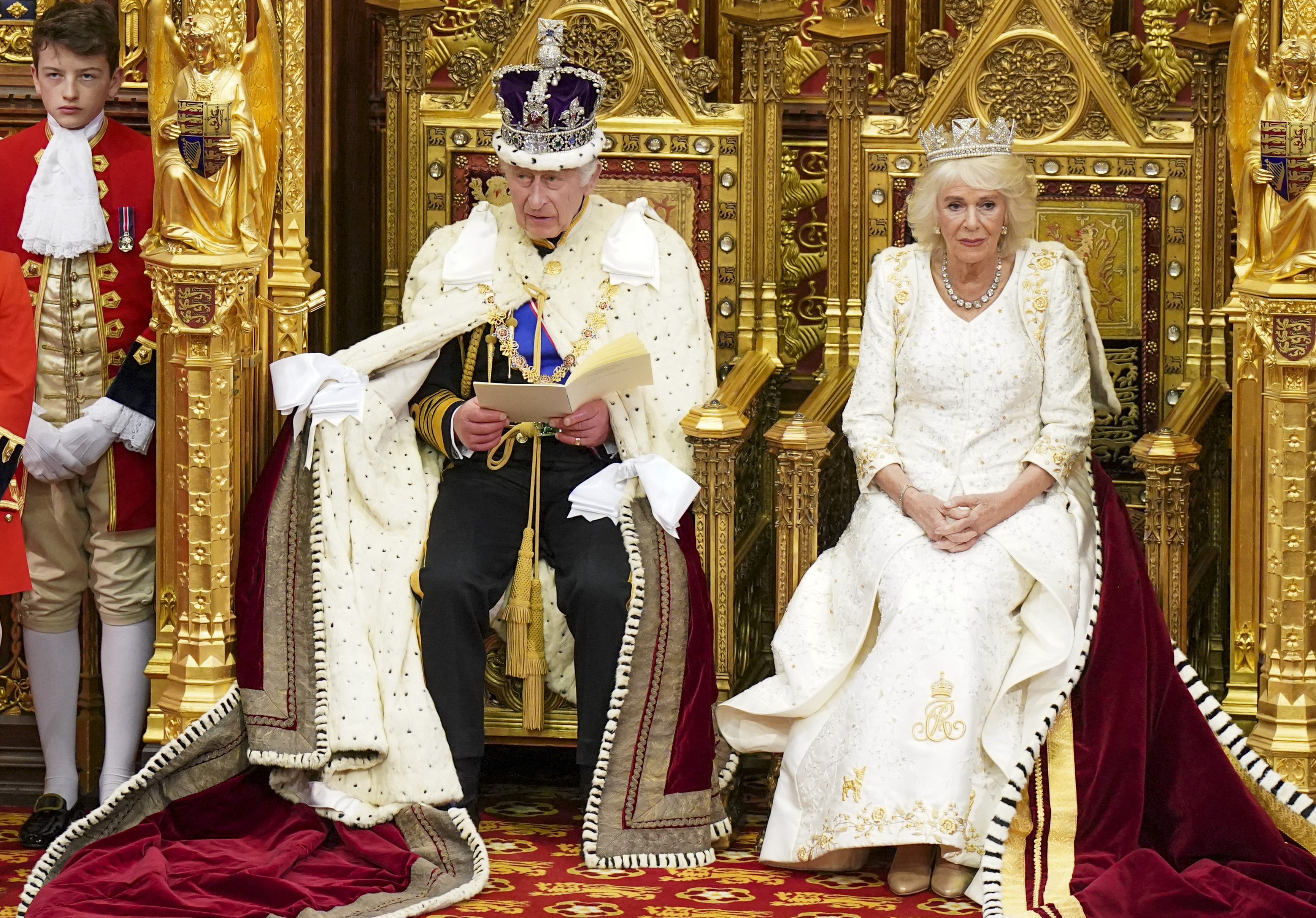King Charles ‘welled up’ during recent speech as he ‘felt pressure’ to make his late mother proud claims body language expert
The monarch seemed very ‘nervous’ when he opened Parliament this week

Parenting advice, hot topics, best buys and family finance tips delivered straight to your inbox.
You are now subscribed
Your newsletter sign-up was successful
A body language expert has shared that King Charles III 'felt pressure' to make his mother the late Queen Elizabeth II 'proud' when he opened Parliament this week, and even ‘welled up’ as he 'reflected' on her life.
It's been a busy week for the Royal Family. Prince William has showed off his secret hobby that would make Prince George, Charlotte, and Louis proud while he attended this year's Earthshot Prize Awards; Prince George is taking some very important exams at school; and now King Charles III, the head of The Firm, has opened Parliament for the first time as monarch.
The State Opening of Parliament is a ceremonious affair. The King and Queen Consort Camilla entered the House Of Lords in all their royal finery, with Camilla opting to wear her Coronation dress, and Charles wearing his military garb for the occasion.
In the speech, as well as laying out Parliament's plans for the coming Parliamentary year, the King praised his late mother's 'legacy of service and devotion.' But while everyone else was listening to his words, one body language expert was more focused on the King's behaviour.

Speaking on behalf of Spin Genie, body language expert Darren Stanton analysed King Charles III’s speech and has revealed his belief that the monarch was not his usual 'confident self’ during the event and it was even possible to 'hear his voice shaking' as he 'felt the pressure to make' his late mother Queen Elizabeth II proud.
According to the expert, the monarch came across as ‘robotic' and 'nervous', and could be seen 'reassuring' himself with subtle body language gestures.
“King Charles didn’t portray his confident self during his speech," he said. "He was lacking ownership and inner strength with his words. I could sense he was really nervous through his mannerisms and delivery.
Parenting advice, hot topics, best buys and family finance tips delivered straight to your inbox.
"In the beginning, he didn't convey very much emotion in his body language or words. His tone of voice came across as robotic. He stumbled a few times, and you could hear his voice shaking every now and then. He would also tap his fingers as a way of reassuring himself. It suggests he did this as he felt he needed to give himself a boost he needed.”
After his shaky start, the King appeared to gather a bit more composure and confidence. But as he opened up and became more 'honest with his emotions' while he spoke about his late mother Queen Elizabeth, the expert believes the 'pressure' he felt to make her 'proud' began to shine through.

"Later on, Charles began to show a bit more of himself when he had moments of sadness, as he reflected on the late Queen and how she did her duty. We saw him become more open and honest with his emotions when he was speaking about his mother. I can tell he felt the pressure with this speech and wanted to make her proud.”
Darren easily explains away the nerves King Charles felt with a simple and understandable statement; it was his first time delivering this speech as the King.
“I wouldn't say he delivered the speech with ease. It was his first time, and I did see regular signals of him feeling apprehensive and nervous," he said. "We saw his eyes well up a bit and at times, he went from looking quite pale to more flushed - and that reveals that Charles went through varying emotions throughout.
"Although we saw Charles feeling nervous, he did show how compassionate and enthusiastic he is about human interest. It is what most people expected it to be. He remained true to himself and showed genuine feelings throughout while remaining impartial.”
Charlie Elizabeth Culverhouse is a news writer for Goodtoknow, specialising in family content. She began her freelance journalism career after graduating from Nottingham Trent University with an MA in Magazine Journalism, receiving an NCTJ diploma, and earning a First Class BA (Hons) in Journalism at the British and Irish Modern Music Institute. She has also worked with BBC Good Food and The Independent.